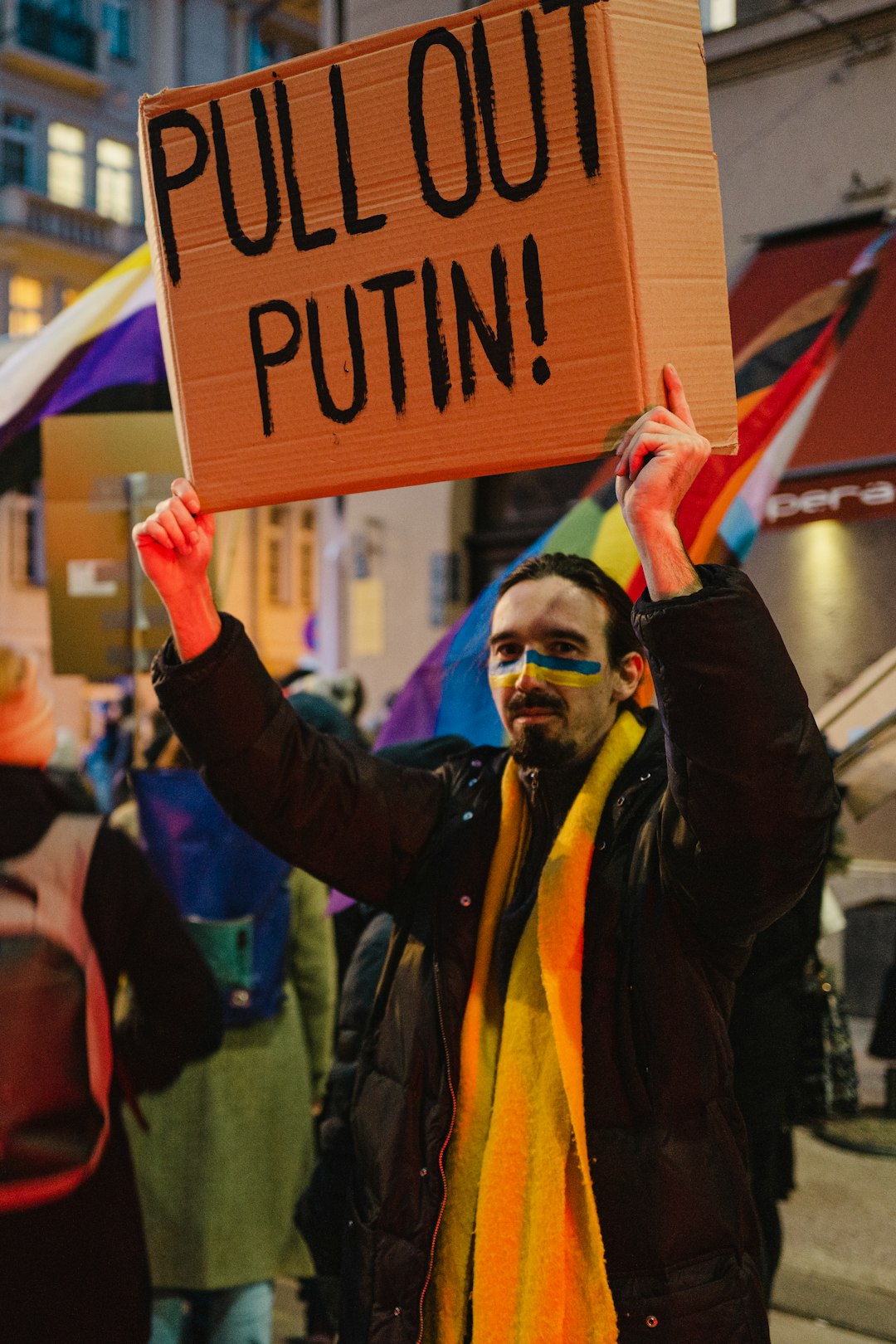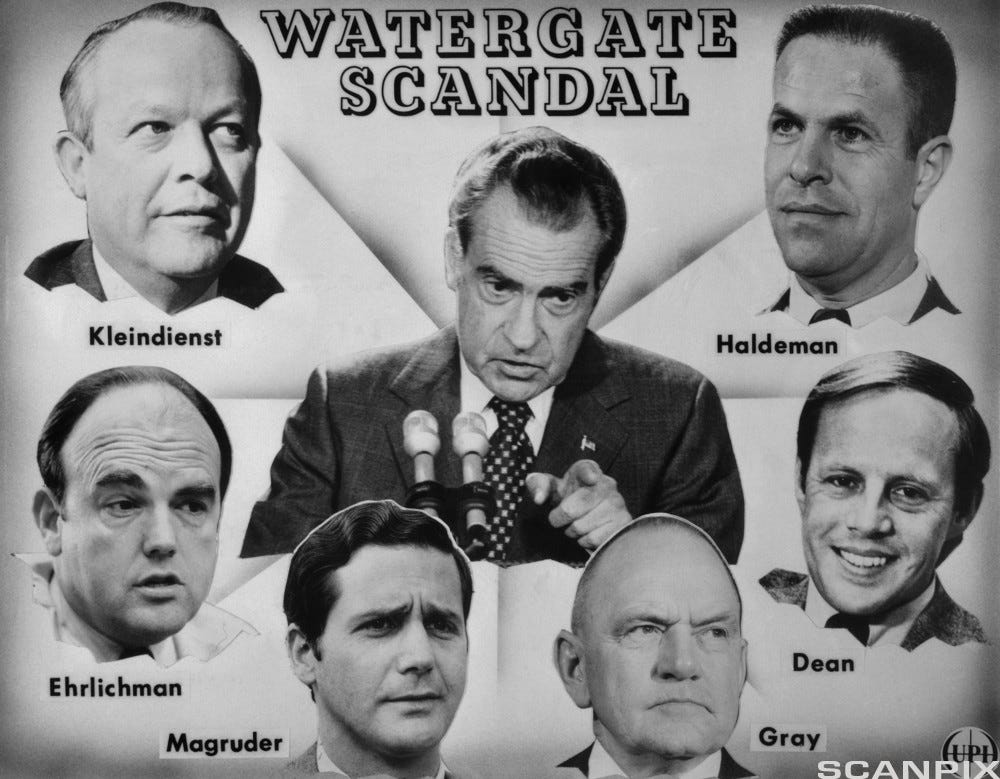Putin's Here to Stay - That's Not Entirely Bad for Ukraine
A Ukrainian victory wouldn't cause regime change in Russia - That makes it all the more likely

After a year of war, no serious threats to Putin’s regime have emerged. As pleasant a prospect as the fall of Putin’s regime might be, there are no indications that it is at all likely. Even in the event of a total Ukrainian victory, there are no figures or institutions with the capacity to force Putin from power. This is an unfortunate reality, for Russia and the world. However, the endurance of the Putin regime has a silver lining to it. Defeat in Ukraine is far less dangerous than it would be otherwise. If defeat in Ukraine meant the end of Putin’s hold on power, he may be expected to take truly desperate measures in an attempt to avoid defeat. Instead, defeat in Ukraine is detrimental to his interest, but not truly a mortal threat. The stranglehold on power that Putin’s personalist dictatorship has developed has given him the ability to cut his losses in Ukraine.
The durability of Putin’s regime is therefore not all bad news for Russia’s adversaries. As I will argue, the limited prospects of Putin’s removal increase the likelihood of peace and make “worst case scenarios” such as nuclear use extremely unlikely. If Putin faced the prospect of regime change should he lose in Ukraine, he would be willing to fight to the bitter end. His survival would depend on it. As a result, his response to defeats would be to continually escalate. It would only be in this scenario that the use of tactical nuclear weapons would be countenanced. Russia would be significantly more dangerous if its government were acting under the assumption that military defeat would be a death sentence for its leadership.
Fortunately, there is very good evidence to suggest that Russian leadership does not view this war as a matter of survival. Despite the rhetoric of Russian propagandists calling for the nuclear annihilation of the NATO alliance, in terms of actions, Russia has gone to considerable effort to avoid escalation. Russia has been exceedingly careful to avoid providing any excuse for greater NATO involvement in Ukraine, even as NATO has continued to provide increasingly extensive lethal aid to Ukraine. American intelligence aircraft that are aiding the Ukrainian war effort have remained unmolested by the Russians. Therefore, based on the cautious Russian attitude towards escalation, we can say that Russian leadership does not view the war in Ukraine as an existential struggle.
There’s good reason for this. The two groups that would be most aggrieved by Russian defeat in Ukraine would be the general public and hardcore nationalists. Both groups have been rendered politically incapable of removing Putin from power. Opposition parties have been systematically destroyed so as to prevent the general public from organizing or in any way focusing its discontent. Decades of propaganda have fostered an information environment in which misinformation is pervasive. While the Russian state has not convinced its people, it has sufficiently confused them as to cause apathy. Nationalist groups have firm stances, but are few in number and have to a significant extent been made subservient to the state. The nationalists turning against the Putin regime in the wake of a defeat in Ukraine is the most threatening scenario for the regime, which is a testament to the extremely limited extent of opposition in Russia.
Underlying this analysis is the assumption that Putin is a rational actor. That’s not to mean he’s especially predisposed to make good or wise decisions, or to want things a reasonable person would consider good. What it does mean is that we should assume that Putin has goals, and that he will take actions to try and accomplish them. For example, we have to assume that Putin will not order the launch of Russia’s strategic nuclear arsenal at the west in a fit of rage because of some slight. The assumption of rationality is the minimum standard we can apply to make useful predictions for Putin’s behavior.
With this in mind, there is no need for any outside force to provide Putin with an exit ramp. When he is beaten, he’ll devise his own exit and brave the domestic consequences because he can. Were the Russian government more fragile, a discussion of the merits of creating the circumstances for regime change would be warranted. However, as it stands, I would argue that fearing Ukrainian victory for the instability it would provoke in Russia is a concern raised in bad faith. Without evidence that Putin’s regime would face an existential threat in the event of defeat in Ukraine, there is no basis to limit aid to Ukraine.
At the end of the day, there’s no shortage of regimes that survived losing wars. Defeat in Vietnam was not ruinous for neither the United States nor Communist China. Saddam Hussein managed to endure after Iraq’s near annihilation in Kuwait. In line with these cases, defeat in Ukraine is not a fatal threat to Putin and ensuring his control over the state and public opinion is strong enough to weather such a reverse. Certainly such a course would be far more familiar and comfortable to a strongman than facing the uncertainty of escalation.
Ultimately, we have nothing to indicate that there is any political force in Russia that represents a serious threat to Putin’s rule. There is no one who could capitalize on the damage a loss in Ukraine would inflict. It’s true that opposition could form in the wake of a defeat, but Putin has made it nearly impossible to organize politically. Putin has spent decades consolidating his stranglehold on power, a newborn opposition faces grim odds. This position of security gives Putin the ability to cut his losses where a less secure figure would be forced to go for broke. Ukraine will therefore have an easier time forcing Putin to the negotiating table.
Putin will ultimately pay a steep pcal price for the movement towards totalitarianism that has bought his security. The intrusion of the state into the lives of ordinary people undermines the apathetic ambivalence that has defined Russian public opinion during the Putin years. The Russian people have closed their eyes to crimes committed by their government abroad and at home, but they cannot forget or ignore its intrusion into their personal lives. Even if the regime insulates itself from responsibility for the war, the measures it has implemented in response cannot be blamed on the West. At the end of the day, there is no excuse that will make fear of denunciation more enjoyable.
This being said, there is therefore no visible mechanism by which a defeat in Ukraine could result in regime change in Russia. The political establishment is entirely dominated by Putin, with no figures positioned to hold Putin accountable for leading Russia into defeat. The application of the regime’s security apparatus has suppressed popular dissent and driven the opposition into exile. These totalitarian measures breed resentment, not reaction. Their consequences will emerge only in the long term. For the time being, the Russian people will endure in silence, following the path of least resistance. When the tension reaches a breaking point, Putin may find himself in serious danger. Yet this threat remains abstract and indefinite. It may be staved off, repressed, or avoided outright. In exchange for this remote danger, Putin has created a situation in which his regime is unthreatened by public opinion.
Therefore, while the possibility of defeat in Ukraine spelling the end for the Putin regime remains, it would have to come about through unforeseen means. Ultimately, then, the most likely scenario for a Ukrainian victory involves Putin remaining in power. While it is a true humanitarian tragedy that Russia is likely to continue to be ruled by a dictator, this is nonetheless beneficial to the prospects of peace in Ukraine. If admitting defeat in Ukraine would spell the end of his regime, Putin is likely to fight to the bitter end; his life might well depend on victory. But if admitting defeat would have no significant consequences to his own safety and grip on power, it is much more easily borne.
This brings us to the point of Clausewitz that this article is centered around. In order to compel our enemy to accept peace, we must put him in a situation in which what we demand is less painful than continued struggle. For Putin, admitting defeat would require the pain inflicted by continued war with Ukraine to overcome the pain of the domestic political consequences of losing. Were there significant political forces within Russia poised to make a bid for power should the regime appear weak, defeat in Ukraine would be extremely costly for Putin. However, these forces do not exist; Putin can expect no organized reaction to defeat in Ukraine. The domestic consequences are therefore only a minor concern in the question of whether the war ought to be continued or concluded.
The sunk-cost-fallacy is a term used to describe the tendency to throw good money after bad, justifying it because of the effort or the resources already committed. It explains why people choose to stay in failing relationships, sit through bad movies they’ve paid for, and why countries are reluctant to abandon military efforts: we’d rather not admit that it was all for nothing, that the time or money spent was wasted. Rather than face that reality, we all too often hope that just a little more effort will redeem the whole enterprise and let us move the mark from one side of the ledger to the other. Putin may have fallen prey to this fallacy as his 72 hour invasion turned into a year long war. It is possible that he might continue in this manner until his hold on power weakens and Russia collapses from the strain. However, it is far more likely that he decides to cut his losses. If Putin does not believe he can win the war, he may abandon the effort rather than prolong the process of defeat. If defeat will provoke domestic discontent, it will be essential to his survival that the bulk of the Russian military remains intact.
In conclusion, Putin has created an increasingly totalitarian environment in Russia. In the long term, this will foster resentment towards his regime. In the short term, it has greatly reduced the potential for regime change. This is advantageous to Ukraine because Putin can be more easily dissuaded from his efforts to subjugate Ukraine. As Clausewitz wrote, “The smaller the sacrifice we demand from our adversary, the slighter we may expect his efforts to be to refuse it to us.” Defeating Putin means convincing him that accepting Ukrainian terms is preferable to continued war. This would not be possible if he faced being overthrown if he lost the war. So, Putin’s here to stay, but Ukraine will have an easier time of it than if he were in a more precarious position. It is far easier to convince an enemy to abandon a war of choice than a war of survival.





